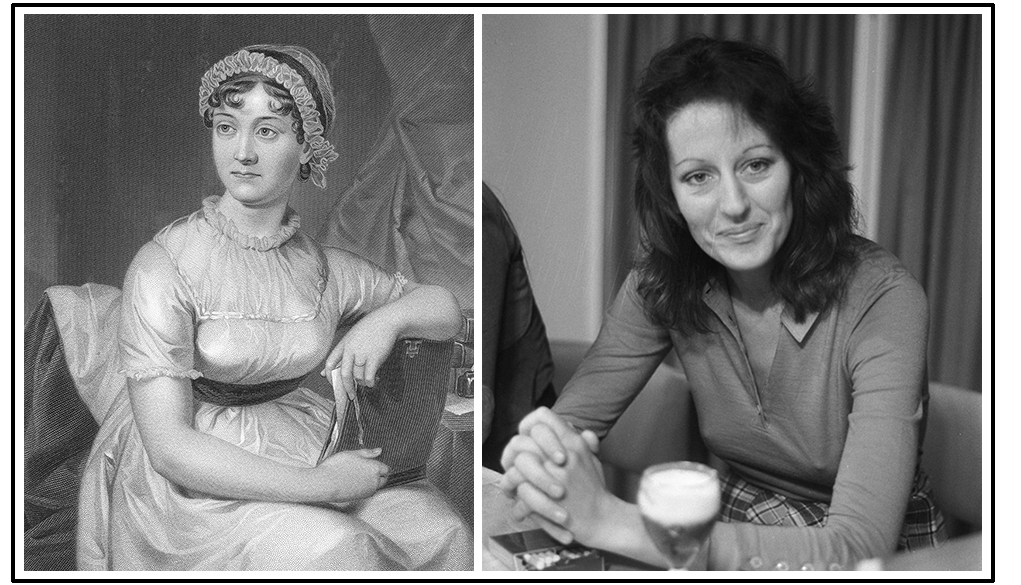Art and Culture
When Safe Spaces Collide with Germaine Greer
Strident, inflammatory, provocative, opinionated – in numerous ways, Greer is difficult to like. She annihilates men and belittles other women, shooting down feminist allies from Friedan to Weldon.

Twitter has spoken. Germaine Greer is both hateful and an irrelevance, a washed up old has-been with nothing more to offer us but some poisonous views on her narrowing world.
Strident, inflammatory, provocative, opinionated – in numerous ways, Greer is difficult to like. She annihilates men and belittles other women, shooting down feminist allies from Friedan to Weldon. She wrote off Susanne Moore as nothing more than “fuck-me shoes and three fat inches of cleavage.” In short, she is terrifying – to all of us, not just to trans women, about whom she can be so breathtakingly offensive. But when people are putting their names to an online petition accusing her of “misogynistic views” it’s hard not to feel that the world has gone mad.
This is not the first time that Greer’s unpleasant stance on trans women has led to controversy. Recent events at Cardiff University reflect a similar row some months ago when the Cambridge Union was petitioned to withdraw Greer’s invitation to speak. Greer has long refused to acknowledge the identity of trans women, although she said in a recent interview on Newsnight that she would use “female speech forms” in their presence “as a courtesy.” Her views are puzzlingly ignorant – a strange anomaly for such a fine thinker – and there is understandable outrage whenever she voices them. Trans people experience more prejudice and hatred than many of us can even begin to imagine. If you’re not convinced of this, consider the fact that a recent survey showed almost half of young trans people have attempted suicide here in the UK; similar studies indicate that the same is true in the US. People who are transgender are undeniably vulnerable and it is everyone’s responsibility to consider their safety as well as to challenge prejudice and misrepresentation whenever it occurs. Yet I am still appalled by the attempt to no-platform Greer at Cardiff, and deeply perturbed by the inevitable social media storm that has followed.

Greer often speaks on the invisibility of older women to the emancipated young, those of us who sit pretty upon the emergent and ever-increasing freedoms that our battle-fatigued antecedents have gifted to us. Yet to understand her as someone who has degenerated into an embittered and reactionary misfit is to underestimate this fearsome and tireless radical. Greer has always held disturbing and divisive views, as anyone who has studied her work should know. To read or to listen to her is to spend much of one’s time with a furrowed brow and a vigorously shaking head. It’s part of what makes her so alluring – and so infuriating. Greer is both a revolutionary and an academic; she’s not in the business of providing comfort or even inspiration – she’s in the business of making us think. She has shared famously unexpected views on a range of feminist issues from genital cutting to the anonymity of rape victims, and she even turns the stomach at times: “If you think you are emancipated, you might consider the idea of tasting your own menstrual blood – if it makes you sick, you’ve got a long way to go, baby.” Really? I have to like the idea of tasting my own menstrual blood to make me a liberated woman? Count me out. But I can tell you this – were I to square up to Greer in an argument, she would crush me like an ant.
Greer is booked at Cardiff to talk on women and power, the lessons of the 20th century. The fact is – and I’m sorry if this upsets anyone’s carefully-constructed world view – there are few speakers so academically robust, so piquant and so engaging, who are better qualified to lecture to students on this particular subject. She is not booked to give a diatribe on transgenderism, indeed she states that she had no plans to even mention it, and the attempt to no-platform her as a “dangerous” speaker is preposterous. Universities should be a public platform for intellectual combat, and if the well-intentioned notion of “safe spaces” has reached the point where an Emeritus Professor’s very presence on a university campus is somehow deemed a threat to the emotional safety of the students, then Houston, we have a problem.
It’s true that Greer provokes a powerful emotional response in many people, but my belief that she remains a speaker worth listening to is not incompatible with this. Supporters of the petition to no-platform her have taken the inevitable furore as evidence of Greer’s “privilege”, an insulting dismissal of her own struggle and her extraordinary achievements as a feminist, an author and a scholar. They also remain convinced that the petition symbolises a robust refusal to fuel transphobia. Yet thanks to their actions, trans women have been exposed to an amplified version of Greer’s controversial views on a viral loop; she only keeps repeating her ill-informed views because people keep asking her about them, and as a result of the petition we’re all getting to hear them again, in gruesome and horrifying detail – Greer is spectacular in her venom when cornered.
Beyond this emotive debate, we will find ourselves faced with a fundamental question: must there be a moment when heroism is obliterated by the flaws of the heroic? Do Greer’s questionable views on trans women rob us all of her achievements and preclude her from maintaining a voice in feminism, the field in which she is both a pioneer and a stalwart?
Personally, I would hate to think so.






